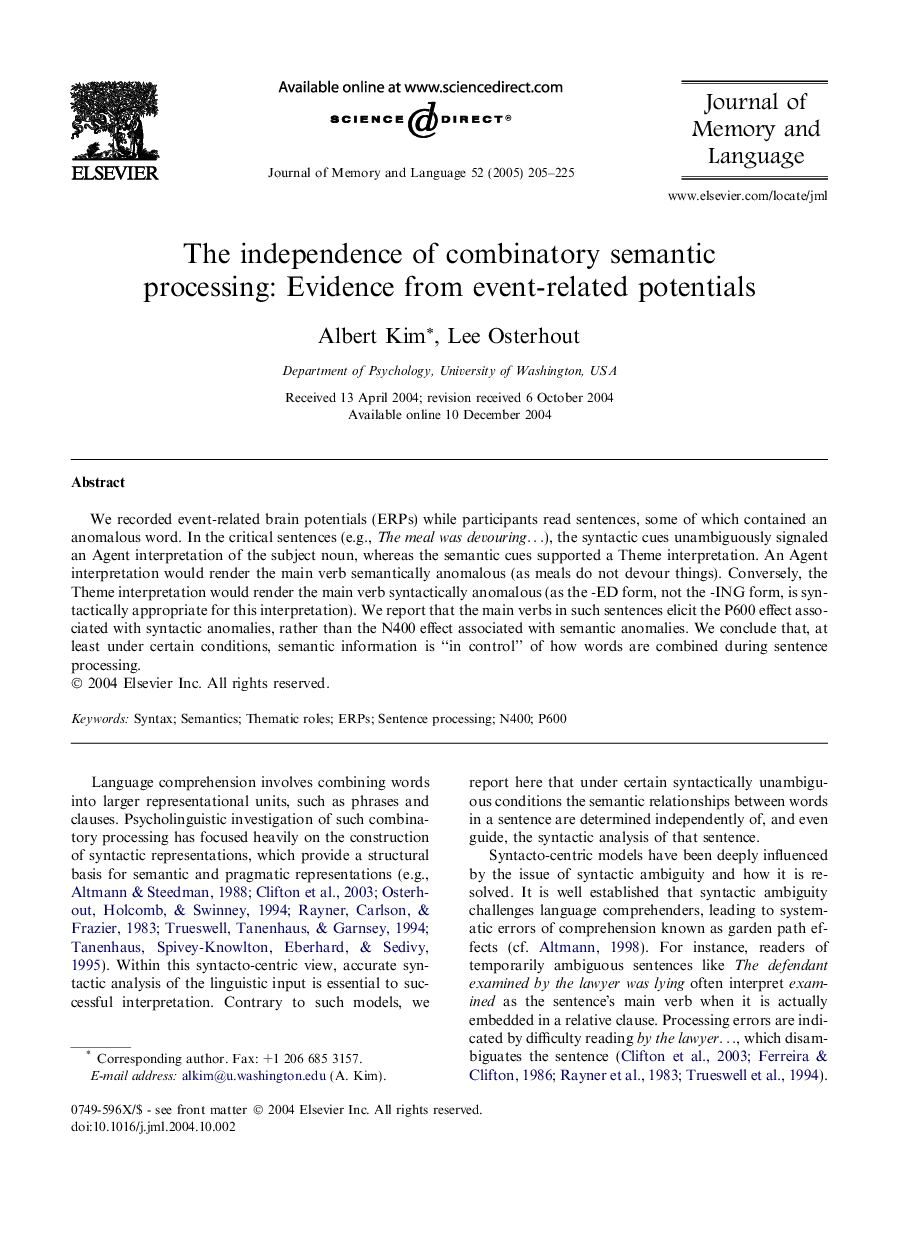| Article ID | Journal | Published Year | Pages | File Type |
|---|---|---|---|---|
| 10459837 | Journal of Memory and Language | 2005 | 21 Pages |
Abstract
We recorded event-related brain potentials (ERPs) while participants read sentences, some of which contained an anomalous word. In the critical sentences (e.g., The meal was devouringâ¦), the syntactic cues unambiguously signaled an Agent interpretation of the subject noun, whereas the semantic cues supported a Theme interpretation. An Agent interpretation would render the main verb semantically anomalous (as meals do not devour things). Conversely, the Theme interpretation would render the main verb syntactically anomalous (as the -ED form, not the -ING form, is syntactically appropriate for this interpretation). We report that the main verbs in such sentences elicit the P600 effect associated with syntactic anomalies, rather than the N400 effect associated with semantic anomalies. We conclude that, at least under certain conditions, semantic information is “in control” of how words are combined during sentence processing.
Related Topics
Life Sciences
Neuroscience
Cognitive Neuroscience
Authors
Albert Kim, Lee Osterhout,
